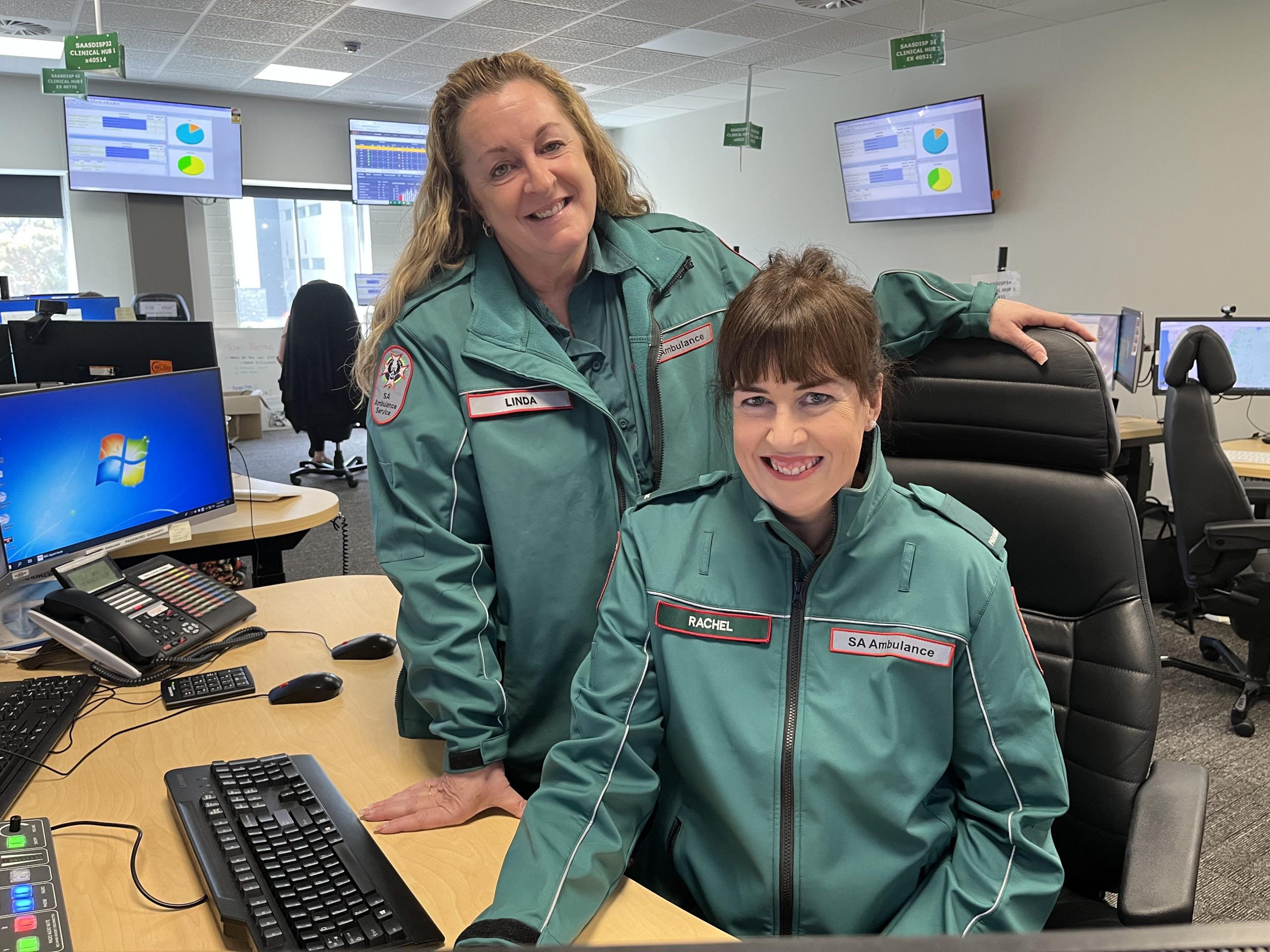Navigating patients to new care pathways
SA Ambulance Service has improved South Australians’ access to health care by helping to develop new care pathways that provide an alternative to a hospital emergency department.
An emergency department is often not the best place for patients who do not require hospital-level acute care and in recent years, we’ve been working with other health providers to develop new options that can provide faster access, more holistic care and ongoing support.
Importantly we also have a focus on connecting patients to their existing care providers including their own General Practitioner, supporting their continuity of care.
SA Virtual Care Service
The SA Virtual Care Service has been established to improve coordination of the health system and patient access to care. One of its services connects metropolitan SAAS crews to hospital clinicians via a video-call while they are on-scene with a patient, supporting patient assessment and streamlining their access to care pathways including ED alternatives where they are clinically appropriate.
Child and Adolescent Virtual Urgent Care Service
The Child and Adolescent Virtual Urgent Care Service is delivered by the Women’s and Children’s Hospital to provide patient consultations via a video-call, allowing people to avoid an unnecessary trip to the Emergency Department. SAAS crews may use this service with suitable patients.
Medicare Urgent Care Clinics
Medicare Urgent Care Clinics are located in Elizabeth, Royal Park, Oaklands Park, Morphett Vale and Mount Gambier. They are open seven days a week with extended hours to provide care for people with urgent, but not life-threatening health conditions.
SAAS crews may refer patients to a Medicare Urgent Care Clinic but these clinics also accept walk-in patients without an appointment or referral. More information and address details.
Priority Care Centres
Priority Care Centres at Marion, Hindmarsh, Para Hills and Elizabeth are able to treat a range of low acuity conditions, with access to radiology, pathology and pharmacy as well as medical services.
BRIGHT hospital avoidance services
The BRIGHT hospital avoidance services at Woodville and Sefton Park are provided by the Central Adelaide Local Health Network for patients who require a more complex assessment or higher level of care than can be accommodated by a GP or Priority Care Centre, and would otherwise be transported to a hospital emergency department.
My Home Hospital
My Home Hospital provides home-based care for patients who would otherwise need a public hospital admission for conditions including respiratory and urinary tract infections, chronic obstructive pulmonary disease and deep vein thrombosis.
Urgent Mental Health Care Centre
The Urgent Mental Health Care Centre provides specialised mental health care and support for people experiencing a mental health crisis.
Mental Health Co-Response (MH CORE)
Mental Health Co-Response (MH CORE) partners paramedics with mental health professionals to respond to people experiencing a mental health crisis. Three-quarters of people attended by MH CORE have been able to be managed successfully at home, whereas previously almost all would have been taken to an emergency department.
Complex and Restorative ‘CARE’ Service
Complex and Restorative CARE Service for older patients from the Southern Adelaide region is based at the Repat health, with a six-place assessment and treatment centre, along with a team who can provide care in the patient’s own home including Residential Aged Care Facilities.
Geriatric virtual support services
Geriatric virtual support services help older people remain in their residential facility with their care supported by a geriatrician team in conjunction with their GP.
Exceptionally Complex Support Needs Crisis Support service
The Exceptionally Complex Support Needs Crisis Support service allows SA Ambulance Service to arrange crisis support for people with disabilities and exceptionally complex support needs in a non-medical crisis, providing an alternative to hospitalisation by arranging increased on-site support for them.
Taxis – smart thinking and a common-sense solution
Taxis are improving patient care by enabling more timely access to health care. One of the challenges of non-hospital care pathways was that we could often arrange an appointment for later in the day as long as the patient had transport to get there.
We often assist people who have called Triple Zero (000) not because they need an emergency ambulance, but because they have exhausted other options and do not have transport or other support.
Our capacity to assist these patients has been improved by offering the option of taxi transport for suitable patients.
Naturally there are safeguards and taxis can only be offered:
- After a detailed clinical assessment by an ambulance clinician
- Where the clinical assessment has deemed it is safe for the patient to travel by taxi
- Where the patient does not require clinical care during transport
- Where the patient consents to travel by taxi

